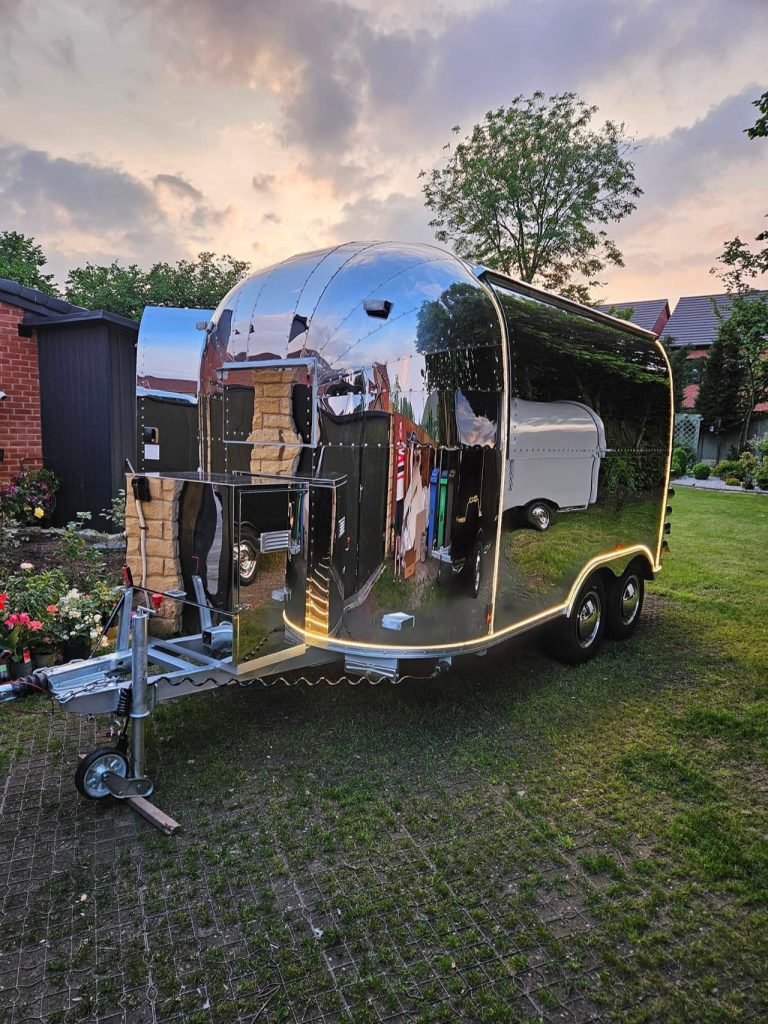In this ultimate guide, you will learn why propane tanks are important for food trailers, the proper size and storage of propane tanks, and how to safely install and use propane for your food trailer. There are many options and factors to consider when installing propane onto your new food trailer, and we will cover those options in this article.
Table of Contents
The importance of propane tanks for food trailers
Food trailers carry equipment such as ovens and fryers that need to be powered and heated. Using generators for power and propane tanks for heating, your food trailer will be self-sufficient and ensure that you can park the food truck in any location and still serve your hungry customers. You will never know what the location will provide, so having your own fuel and energy onboard the food trailer will keep the business running smoothly with no interruptions.
Propane has its risks as well but used properly on a food trailer, propane is a safe and efficient way to fuel your cooking equipment. Ensuring you use the right size tanks for your food trailer will keep your equipment running without running out of fuel.
How many gallons of gas does a food trailer hold?
A food trailer can hold up to two tanks, each carrying 100 pounds of fuel. Depending on the size of the fuel box and the size of the trailer, you may need to install and use different sizes on your fuel trailer. Read below for common sizes, and how to calculate the propane usage for your food trailer.
Common sizes of propane tanks:
- 20 pound tank = 18 inches high x 12.5 inches in diameter
- 30 pound tank = 24 inches high x 12.5 inches in diameter
- 40 pound tank = 29 inches high x 12.5 inches in diameter
- 100 pound tank = 48 inches high x 14.5 inches in diameter
BTU Scope of Propane Tanks:
- 20 pound tank = 430,270 BTU
- 30 pound tank = 649,980 BTU
- 40 pound tank = 860,542 BTU
- 100 pound tank = 2,160,509 BTU
This information is important to consider, as well as the BTU scope of propane tanks. Understanding the size of the tanks and how much fuel they carry will ensure that you never run out of fuel while creating amazing food for your customers.
Calculating Propane Usage For Your Food Trailer:
To ensure you will not run out of fuel while cooking food on your food trailer, gather the information about the BTU ratings for each piece of equipment that uses propane. This information is fairly easy to find, as it is usually printed on labels on your equipment, or easily found in the user’s manual for each item. We recommend storing all equipment user manuals together in one place for easy reference. The BTU ratings assume you will be using the piece of equipment on the highest and hottest possible setting, so in actuality, you will be getting slightly more mileage out of your propane tanks because you will not always be using your food equipment at the highest settings.
Add together all the BTU ratings of every device on your food trailer that will be powered by propane. Divide this number by the BTU rating of the tank you will be carryings, and the resulting number will be the number of hours your propane tanks can power your equipment if running at the highest possible intensity.
Where to install a propane tank on a food trailer
The trailers we build have custom-built propane tank boxes to ensure a safe place for the propane tanks to reside. Each model has a storage area that is designated and holds the appropriately sized tanks for your trailer. Check your local government regulations for the appropriate size for your trailer, as different areas have regulations in place for the amount of propane your food trailer can safely carry and use.
How to connect propane tank with the gas machine on a food trailer
A licensed gas technician can safely install the propane lines that run from the propane tanks to each piece of food equipment and show you how to operate and maintain the system. Propane tanks are an excellent fuel source for your cooking equipment and establishing a relationship between a licensed gas technician and your business will keep everything running smoothly when you run into any issues. Any repairs and future installations should always be performed by a licensed gas technician.
Keep propane tank safe on a food trailer
Many areas require propane tanks to be stored and installed upright on the trailer for safety reasons, so check local guidance before installing your propane tanks. As well, many areas require transportation plugs to be used while moving the trailer. Each time the tanks are hooked up, ensure they are attached by someone who is certified, if applicable in your local area.
All the tubing from your propane tanks to your cooking equipment should be securely held down and anchored, never allow this tubing to just run loose. Leak indicators on the food trailer are also important to determine if there are any propane leaks. Also ensure that every time the tanks are disconnected, each piece of equipment on your food trailer has the propane valves shut off.
Keep a fire extinguisher at hand on your food trailer to quickly put out any fires from the cooking equipment or propane tanks. Ensure the proper warning signs are posted as required by your local area. As always, check your local area for any laws and regulations in place for propane tank safety.
Conclusion
Propane tanks are ideal for your food trailer because they are portable, refillable, and provide fuel for your cooking equipment regardless of what is available at your parking destination. You can keep your customers happy and enjoying your menu by choosing and using the correct size propane tanks for the food trailer you have selected for your business.



